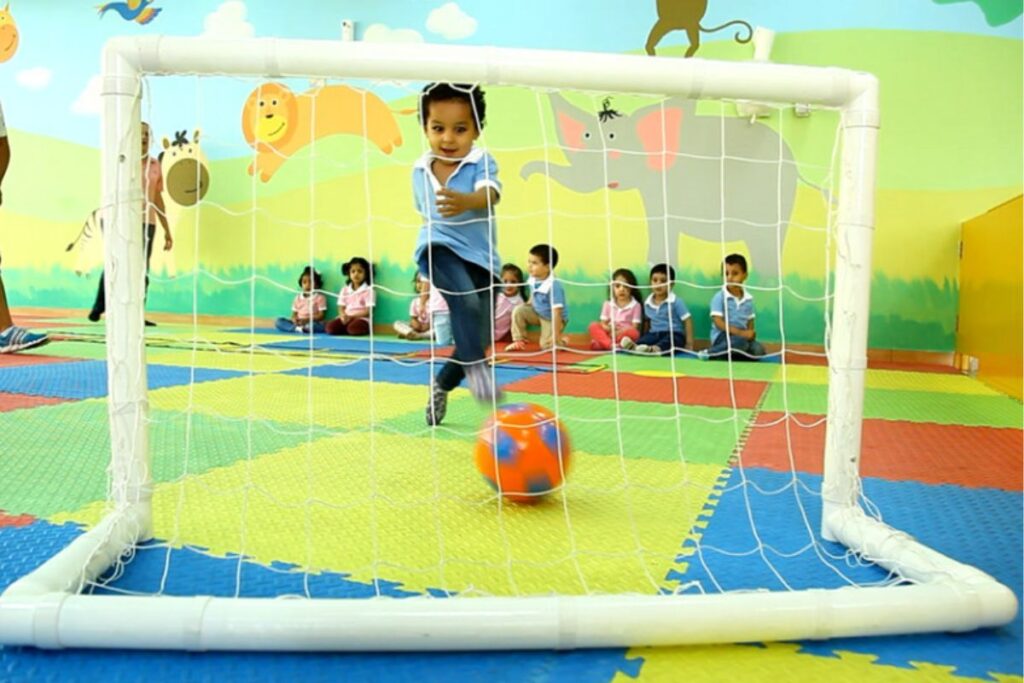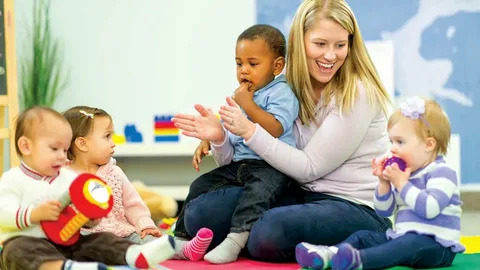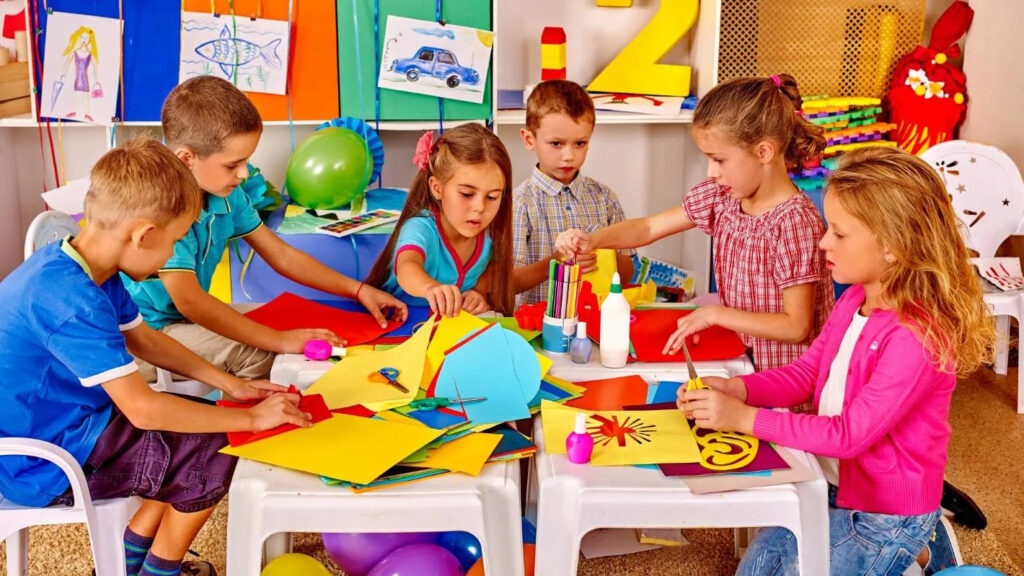Many people assume that sending a child to a nursery simply means leaving them in someone else’s care while parents are busy. On the surface, it might seem like a convenient option for working parents, but the role of a modern nursery goes far beyond basic supervision. These early childhood education centers are designed to nurture, stimulate, and develop young minds, laying the foundation for lifelong learning and social skills. Understanding the full scope of what nurseries offer can change the way we view early childhood care.
The True Purpose of a Nursery
A nursery is not just a place to drop off your child; it is a carefully designed environment where learning and development happen naturally. From the moment children enter, they are exposed to structured routines, age-appropriate activities, and opportunities to explore their surroundings. Every element, from toys and learning materials to the classroom setup, is curated to foster curiosity, creativity, and independence.

Social Skills Development
One of the most significant benefits of nursery attendance is the development of social skills. Interacting with peers helps children learn to communicate, share, and resolve conflicts in a supportive environment. These interactions are essential for building empathy and emotional intelligence, skills that are crucial throughout life. In a nursery, children are guided by trained staff who model positive behavior and provide gentle guidance during social challenges, helping children understand and navigate complex emotions.
Cognitive Growth Through Play
Play is not just fun; it is a critical part of cognitive development. Through structured and unstructured play, children develop problem-solving abilities, critical thinking skills, and early literacy and numeracy skills. Activities such as puzzles, building blocks, and creative arts engage children’s minds and encourage exploration. A nursery provides a safe space for this kind of experiential learning, where children are allowed to make mistakes, experiment, and discover solutions independently, which builds confidence and resilience.
The Role of Trained Educators
It is easy to think that anyone can supervise a group of toddlers, but trained nursery educators bring specialized knowledge of child development. They are skilled in observing, assessing, and responding to the unique needs of each child. These professionals create lesson plans that balance learning and play while also identifying early signs of developmental delays or learning difficulties. Their expertise ensures that every child receives the attention and support they need to thrive, not just survive the day.
Note : Give your child the best start with a trusted Nursery in Barsha. At Little Feet ELC, we focus on holistic development, blending learning, play, and social skills. Enroll today and let your little ones grow in a safe, nurturing environment designed just for them.
Individualized Attention
Even in group settings, nurseries emphasize individualized learning. Educators track developmental milestones and adapt activities to suit each child’s abilities. For instance, a child who shows an early interest in numbers may be given additional activities that enhance math skills, while another who struggles with motor skills may receive targeted exercises to improve coordination. This level of attention ensures that children grow at their own pace and feel confident in their abilities.
Emotional Support and Security
A nurturing nursery environment also prioritizes emotional well-being. Children learn to cope with separation anxiety, develop self-regulation skills, and gain confidence in social settings. Educators provide reassurance, positive reinforcement, and structured routines that create a sense of security. These early experiences of emotional support play a vital role in shaping how children manage stress and build relationships in later years.

A Look at Modern Nursery Facilities
Modern nurseries are designed with child development in mind. Bright, open spaces, sensory-friendly areas, and age-appropriate equipment create an inviting and stimulating environment. Outdoor play areas encourage physical activity, while indoor classrooms support imaginative play and cognitive challenges. Many nurseries also integrate technology in moderation, using educational apps and tools to enhance learning without replacing hands-on experiences.
Curriculum and Learning Approach
Nurseries often follow a structured curriculum that combines learning objectives with playful activities. Themes might include nature exploration, arts and crafts, music, storytelling, and basic science experiments. These activities are designed to ignite curiosity, develop fine and gross motor skills, and introduce foundational concepts that prepare children for formal schooling. A well-rounded curriculum ensures that children receive a holistic early education, addressing intellectual, social, emotional, and physical development.
Healthy Routines and Habits
In addition to academic and social growth, nurseries teach children essential life skills. Healthy routines such as handwashing, healthy eating habits, nap schedules, and personal hygiene are incorporated into daily life. These small but crucial lessons help children develop independence and self-care skills, which are essential as they transition into school and beyond.
Choosing the Right Nursery in Barsha
For parents in Dubai, finding a quality nursery can make a significant difference in a child’s development. A reputable nursery in Barsha offers a combination of experienced educators, a safe and stimulating environment, and a well-structured curriculum. Visiting potential nurseries, speaking with staff, and observing the learning environment can help parents make informed decisions that align with their child’s needs and personality.
Factors to Consider
When evaluating a nursery, parents should consider teacher-to-child ratios, qualifications of staff, cleanliness and safety standards, curriculum approach, and the availability of extracurricular activities. Communication with parents is also crucial, as ongoing updates and progress reports help families stay engaged in their child’s development journey.
Long-Term Benefits
Enrolling children in a quality nursery provides long-term benefits that go beyond the early years. Children who attend nurseries with strong educational and social programs tend to perform better academically, develop stronger social networks, and exhibit higher levels of emotional intelligence. These early advantages can set the stage for success in school and later life.

Misconceptions About Nurseries
Despite these benefits, some people still see nurseries as glorified babysitting. This perception overlooks the professional skills, educational frameworks, and developmental focus that nurseries provide. It is important to understand that nurseries are not just about keeping children safe—they are about preparing them for a lifetime of learning and social engagement.
Dispelling the Babysitting Myth
Nursery educators are trained to create purposeful experiences that stimulate growth. The balance of play, learning, and social interaction is intentional, designed to promote cognitive and emotional development. Unlike casual childcare, a nursery provides structured guidance, professional observation, and targeted interventions when needed, making it a vital stage in early childhood.
A Collaborative Approach with Parents
Nurseries also work in partnership with parents, offering guidance and support to ensure consistency between home and school environments. This collaboration helps children feel secure and understood while reinforcing developmental goals. Parents are encouraged to participate in activities, provide feedback, and celebrate milestones, making early education a shared experience.
The Broader Impact of Early Childhood Education
Investing in quality nursery care has societal benefits as well. Early childhood education contributes to better school readiness, higher literacy rates, and improved social outcomes. Children who experience structured, supportive, and engaging learning environments are more likely to succeed academically, socially, and emotionally. In this sense, nurseries are not only shaping individual children but also contributing to the broader community and future workforce.
Lifelong Learning Habits
The skills and habits developed in nursery—curiosity, problem-solving, collaboration, and resilience—form the foundation for lifelong learning. Children learn to approach challenges with confidence, communicate effectively, and value exploration and creativity. These traits are essential not just for academic success, but for personal growth and adaptability in a rapidly changing world.
Building Confidence and Independence
A nursery environment encourages children to try new things, make choices, and interact with peers in a structured setting. This independence fosters confidence, helping children navigate the complexities of school and social life with a strong sense of self. Early successes in learning and social interaction build a positive feedback loop, reinforcing self-esteem and motivation.
Conclusion
Thinking of a nursery as merely babysitting misses the profound impact these early education centers have on a child’s development. From cognitive growth and social skills to emotional support and healthy habits, nurseries provide a comprehensive foundation for lifelong success. For parents considering the best start for their children, choosing a quality nursery in Barsha or similar reputable institutions can make all the difference. Early education is an investment, shaping not only individual futures but also the broader society, proving that nurseries are much more than just a place to watch over children—they are places where young minds grow, thrive, and prepare for the world ahead.
For More Isightful Articles Related To This Topic, Feel Free To Visit: trend verse

Pingback: Anchor Bolts in Dubai: Market Growth Statistics You Need to Know (2025) - trendverse.info